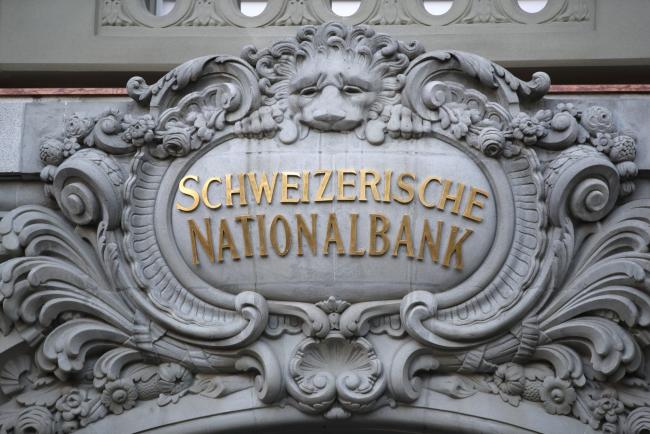(Bloomberg) -- The Swiss National Bank kept interest rates at rock bottom, cut its inflation forecasts again and warned that the global slowdown could worsen.
A dramatic change in fortune for the world economy is making it harder for policy makers across major economies to boost price pressures. In Switzerland, the franc’s strength against the euro has exacerbated the issue, which the central bank has sought to counter with the world’s lowest interest rates and occasional currency interventions.
On Wednesday, U.S. Federal Reserve Chairman Jerome Powell called the battle with anemic inflation “one of the major challenges of our time.” The European Central Bank said in its economic bulletin on Thursday that underlying euro-area inflation remains “muted.”
The SNB, which held its deposit rate at minus 0.75 percent, cut its inflation outlook for a fourth straight meeting, reiterated its intervention pledge and again labeled the franc “highly valued.” It forecasts that price growth will average just 0.3 percent percent this year and 0.6 percent in 2020.
“With this low inflation forecast, the SNB is sending a very dovish signal and is adopting the same course as the Fed and the ECB,” said Daniel Hartmann, an economist at Bantleon Bank in Zug. “An increase in the policy rate is not to be expected in Switzerland for the foreseeable future.”
Coupled with stubbornly weak price pressure, soft economic data have prompted central banks around the world to rethink their next policy steps. Powell predicts that U.S. interest rates could be on hold for “some time” and the ECB has committed to keeping borrowing costs unchanged at least through the end of this year.
The franc was little changed at 1.13235 per euro as of 10:35 a.m. Zurich time.
For the past two months, it’s mostly traded within a range of 1.13-1.14, though increased investor anxiety about a cliff-edge Brexit or other political tensions could boost it again. The SNB spent 2.3 billion francs ($2.3 billion) intervening in currency markets in 2018, a fraction of the 48 billion francs spent the previous year.
Despite the downbeat outlook for inflation and warnings about global risks, the SNB kept its 2019 growth prediction at around 1.5 percent. Unemployment was low, production capacity well utilized and data suggested a moderate expansion, it said.
